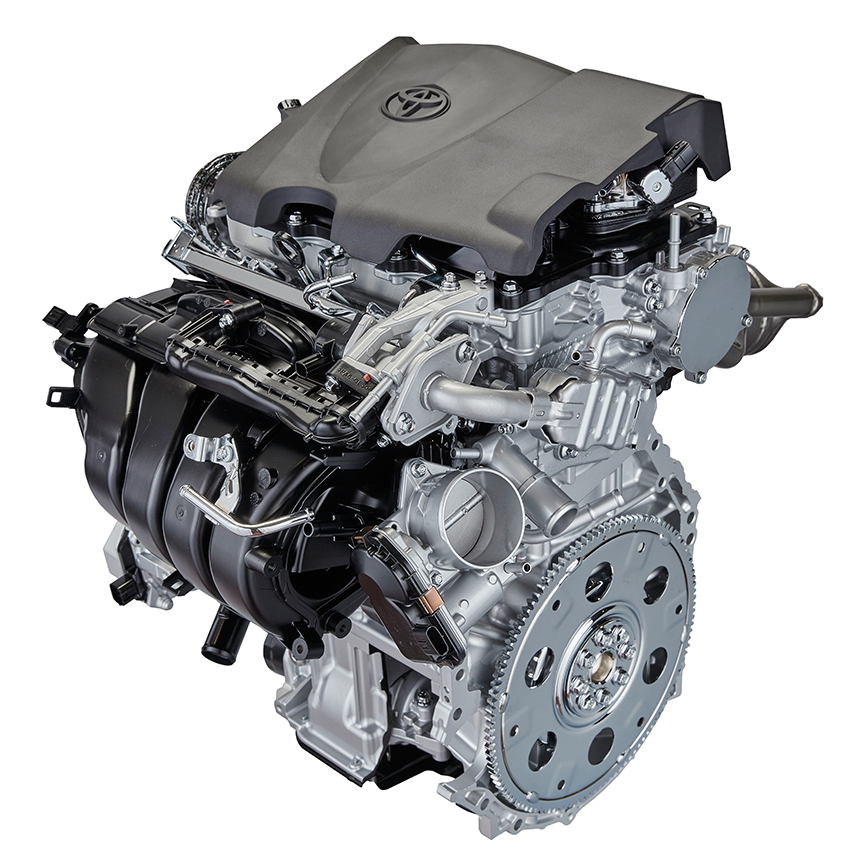TOYOTA

Japanese automaker is already working on a new line of combustion engines that promise to be much more efficient than the current ones
Today, there is a consensus among experts about the main advantage that EVs have over traditional vehicles: they pollute less.
This does not mean, however, that the main villains in the business are necessarily combustion engines. And this is where the conversation gets more complex. The real villain is pollution.
Yes, the engines that are the majority today pollute more than batteries. But what if these engines start to pollute less? What if hybrid models powered by ethanol are a better alternative than EVs today? These are important questions, especially considering the current times, when electric vehicles are not yet consolidated.
Major brands around the world are asking or have already asked the same questions. Some are betting all their chips on EVs. Others, not so much... Toyota, for example, which leads ‘year in, year out’ in global sales, does not seem to have completely abandoned traditional models.
The Japanese automaker is working on a new line of combustion engines that promise to be much more efficient than the current ones. In the words of the company's technology director, Hiroki Nakajima, the project could “change the rules of the game” and put classic engines back in the running.
What's different about the new engines?...The first advantage, according to Toyota, is that they are 10% to 20% smaller than current engines.
The size helps reduce weight and allows the cars to have a lower hood line, which improves aerodynamics.
Combining these two elements, we have considerable fuel savings.
Another change is in the number of cylinders, which will increase from 3 to 4.
The big difference, however, concerns thermal efficiency.
In other words, more energy will be converted into movement and less will be lost as heat.
The Japanese brand has not yet released figures on this aspect.
What we do know is that the automaker is working in partnership with its competitors Mazda and Subaru and already has three new engine models: 1.5 naturally aspirated, 1.5 turbo and 2.0 turbo.
The idea is that they will start equipping the cars from 2027, but testing has already begun.
A video released on the Toyota Times channel shows the behavior of the new model on the track:
What Toyota has already said about the future...Does this initiative by Toyota indicate that the brand has completely abandoned electric cars? The answer is no. Life, by the way, is not just black and white – one thing or the other. There are many shades of gray in between.
The brand, however, makes it clear that its priority is decarbonization – and that it will pursue this goal according to each global market. In Brazil, the company sees ethanol as a safe, sustainable and possible path.
“Our intention is to have at least one electrified version of each model produced in the country by 2025. However, we understand that the commercialization of hybrid or electric vehicles varies according to the infrastructure and demand of each market. Our commitment is to decarbonization, after all, the enemy is carbon and not the combustion engine,” wrote the Japanese.
“We believe in Brazil’s potential to stand out globally in decarbonization, especially with ethanol, driving not only sustainability, but also social and economic progress. The hybrid flex technology, of which we are pioneers, is an example of how we can offer sustainable mobility options suited to the needs of each region. Sugarcane ethanol is one of the biofuels with the lowest carbon footprint in the world. A clean and renewable solution, and one that is a reality in Brazil,” concluded Toyota.
Mundoqautrorodas

Nenhum comentário:
Postar um comentário